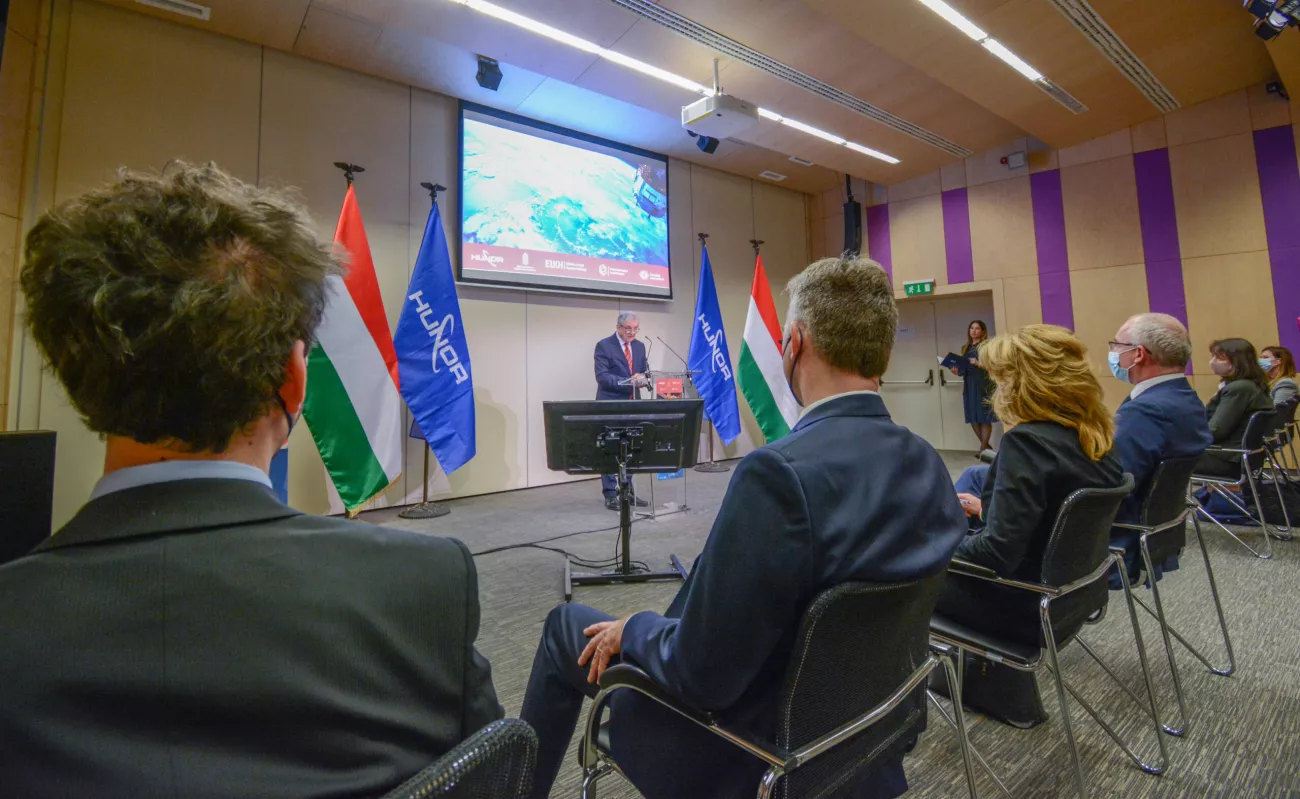The aim of the HUNOR – Hungarian to Orbit program launched by the Hungarian Ministry of Foreign Affairs and Trade is to enable world-class Hungarian scientific experiments and tests to be carried out at the International Space Station through the participation of a Hungarian astronaut, scheduled for 2024.
The astronaut application phase has been completed and the complex selection process in cooperation with the European Space Agency has begun.
The backbone of the HUNOR program consists of scientific and technological content compiled during a comprehensive and careful consultation process. The Space Research Department of the ELKH Centre for Energy Research (EK-CER) is responsible for the elaboration and coordination of the implementation of this program.
The Ministry of Foreign Affairs and Trade and the EK-CER will issue a joint call for project proposals for the exploitation of any remaining spare capacity in the mission, as well as potential opportunities for participation in other human spaceflight programs.
Space research today is more than a scientific activity driven by scientific curiosity or a desire to discover. The operation of the terrestrial technologies of our civilization depend to a large extent on systems installed in outer space and space infrastructures, and the development of the same. A significant proportion of the solutions to the global economic, social and environmental challenges of the 21st century must also be sought in outer space. Our civilization is on the verge of another leap forward in terms of its technological development. This will be supported by the most advanced Hungarian space research based on state-of-the-art technology.
“As one of the most important stakeholders in the Hungarian research and development and innovation sector, the strategic goal of the Eötvös Loránd Research Network is to participate in domestic and international space research as a center of knowledge, competence and infrastructure. Over the last few decades, world-class space exploration competencies have been developed at six ELKH research sites. Active participation in space activities, including the HUNOR program, will further strengthen cooperation between research institutes, higher education institutions and industry, thereby improving the quality of research and education and also supporting the supply of researchers. These are breakthroughs that will help put Hungary at the forefront of scientific innovation, while also maintaining its leading role in the region and preparing for the challenges of the approaching new space age,” commented Miklós Maróth, ELKH President.
“Since 2018, within the government structure, the Hungarian Ministry of Foreign Affairs and Trade has overseen the area of space research, which the government treats as a priority. This special attention is demonstrated by the fact that the government adopted Hungary's first space strategy in the summer of 2021. For the first time, the document set out the priorities for space exploration and space activities as an independent field, as well as government-sponsored flagship projects, including the astronaut program," said Péter Sztáray, State Secretary for Security Policy.
“We will have the opportunity to witness the unfolding of a new space age, in which human spaceflight will gain a new meaning, and will gradually become part of the everyday life of mankind. For Hungary, it is a strategic matter to further develop the existing competencies in human spaceflight in line with international trends, and to acquire new skills such as the training potential of Hungarian astronauts and the maintenance of a national team of astronauts. These capabilities are expected to be established within the framework of the HUNOR program," informed Orsolya Ferencz, Ministerial Commissioner for Space Research.
“The Centre for Energy Research is one of the oldest research sites in Hungary dealing with space research. Nearly a hundred Hungarian devices made at EK-CER and its predecessors have been launched into space aboard geophysical missiles, satellites, interplanetary probes, human spacecraft and space stations. It is a huge recognition for both the research centre and the entire Hungarian space activity that the HUNOR – Hungarian to Orbit program is under the leadership of the EK-CER Space Research Laboratory," emphasized Ákos Horváth, Director General at EK-CER.
“The HUNOR research and technology sub-program includes research areas that are at the forefront of today's human spaceflight, as well as the use of key technologies that are essential for the implementation of future long-term human spaceflight. The sub-program includes dosimetry studies of cosmic radiation and the development of the necessary technological equipment, materials science and material technology developments, space science and space medicine research, space analytical research, and the further development of domestic telecommunications technologies. All this is complemented by marketing activities aimed at promoting space research and educational activities involving future Hungarian astronauts,” said Balázs Zábori, EK-CER space research engineer and project manager at the HUNOR –Hungarian to Orbit program.
